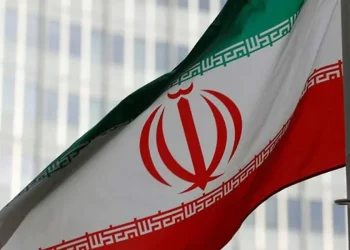Eka Gigauri is used to harsh words from officials about the anti-corruption work she does in Georgia. But seeing her face on posters, accusing her of being an agent of foreign influence, a traitor and a spy, rattled her.
Gigauri, who leads one of Georgia’s main anti-corruption campaign groups, says she and many others have been targeted in connection with a new law, pushed through parliament by the government.
The “foreign influence” law requires media, civil society groups and nonprofit organizations to register as “pursuing the interests of a foreign power” if they receive more than 20% of their funding from abroad. It also subjects them to intense state scrutiny and imposes steep fines for noncompliance.
The government argues the law is needed to curb harmful foreign actors trying to destabilize the South Caucasus nation of 3.7 million. Many journalists and activists say its true goal is to stigmatize them and restrict debate before an election scheduled for October. It could also threaten Georgia’s bid to join the European Union.
This story, supported by the Pulitzer Center for Crisis Reporting, is part of an ongoing media series covering threats to democracy in Europe.
The law resembles similar legislation in Russia, where it has been used to crack down on opposition supporters, independent media and human rights activists. Georgian Dream, the country’s ruling party, got the legislation through on its second attempt.
In 2012, after years of turbulence, Georgian Dream came to power. The party was set up by Bidzina Ivanishvili, a shadowy billionaire who made his fortune in Russia and served briefly as Georgia’s prime minister. He has stayed out of public view since 2013.
Georgian Dream promised to restore civil rights and “reset” relations with Moscow. It also vowed to pursue EU membership and ties with the U.S., reassuring those Georgians who looked to the West to protect them from their overbearing northern neighbor.
In August 2008, Russia fought a brief war with Georgia, which had made a botched attempt to regain control over the breakaway province of South Ossetia. Moscow then recognized the independence of South Ossetia and another breakaway Georgian province, Abkhazia, and set up military bases there.
In 2022, after Russia’s full-scale invasion of Ukraine, Georgia formally applied to join the EU. Support for EU membership was already high, but after the invasion, polls showed about 74% of Georgians were in favor.
Many in Georgia, with its long history of domination by Moscow, supported Ukraine as it battled the Russian invasion. But the Georgian government abstained from joining sanctions against Russia, barred dozens of Kremlin critics from entering the country, and accused the West of trying to drag Tbilisi into open conflict with Moscow.
Almost exactly a year later, Georgian Dream first put the “foreign influence” bill before parliament. Weeks of demonstrations followed, where police used tear gas and water cannons to disperse protesters.
The EU made clear that the bill, if passed, would damage Georgia’s membership prospects. In March 2023, the draft legislation was withdrawn. In December, the EU offered Georgia official candidate status, despite concerns about the rule of law.
In April 2024, Georgian Dream brought the bill back to parliament and the protesters returned to the streets. Georgia’s pro-EU President Salome Zourabichvili used her veto, but parliament overrode her with a simple majority, and the bill became law.
Rights advocates cast the law as an existential threat.
“By labeling independent groups and media as serving foreign interests, they (Georgia’s leadership) intend to marginalize and stifle critical voices in the country that are fundamental for any functioning democracy,” said Hugh Williamson from the advocacy group Human Rights Watch.
The day after the bill was enacted, Georgian Dream introduced proposals to ban media depictions of same-sex relations and any public gatherings endorsing them.
Tamar Jakeli, the head of prominent LGBTQ+ rights group Tbilisi Pride, argues that both initiatives are part of a broader strategy by the ruling party to divide society.
“The West, the opposition, LGBT people, and civil society — we are all, together, demonized as spreading LGBT propaganda, trying to impose a Western lifestyle, erase Georgian traditions,” said Jakeli, who has moved homes because of safety reasons and carries pepper spray when out.
Like the “foreign influence” bill, the proposed anti-LGBTQ+ provisions mirror Russian legislation. Rumors have swirled for months that Georgian Dream may be acting in coordination with the Kremlin — something the party vehemently denies.









 American Dollar Exchange Rate
American Dollar Exchange Rate